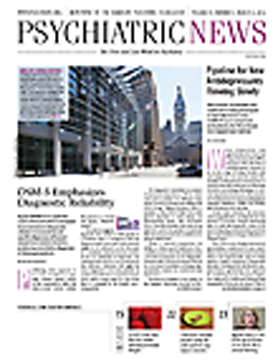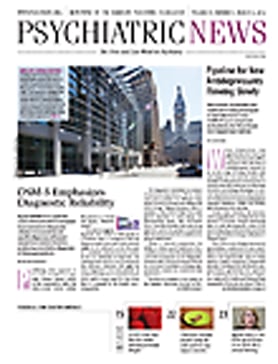There is symptomatic treatment for traumatic brain injury—notably rest, recovery, and avoiding exposure. There are evidence-based treatments for posttraumatic stress disorder (PTSD). Yet the best treatment for individuals who have both traumatic brain injury and PTSD remains to be identified.
Now a small proof-of-concept study suggests that the best treatment might be hyperbaric oxygen therapy. It was headed by Paul Harch, M.D., an associate clinical professor of medicine at Louisiana State University. The findings were published November 28, 2011, in the Journal of Neurotrauma.
The study included 16 active-duty or recently retired American service members who had received a mild to moderate traumatic brain injury/postconcussion syndrome on average three years earlier and who were also experiencing PTSD. They received 40 one-hour hyperbaric oxygen sessions during a 30-day period. Each hyperbaric oxygen session was delivered at 1.5 ATA (atmospheres absolute), which is considered low pressure. The subjects were given physical and neurological exams, SPECT brain blood flow imaging, and neuropsychological and psychological testing before treatment and within one week after treatment.
The researchers found that the subjects experienced not only a significant improvement in brain blood flow, but a significant reduction in various symptoms purportedly stemming from traumatic brain injury/postconcussion syndrome or PTSD. For example, on the PTSD Checklist-Military, the average score dropped 20 points, from 67 to 47, which was a highly significant difference. The Rivermead Post Concussion Symptoms Questionnaire average score dropped 16 points, from 40 before treatment to 24 after, also a highly significant difference.
“Together, these two measurements indicated a major improvement in the symptoms of PTSD and postconcussion syndrome,” the researchers wrote.
“These findings,” they continued, “were mirrored by a reciprocal reduction or elimination of psychoactive and narcotic-prescription-medication usage in 64 percent of those subjects for whom they were prescribed. Spontaneous improvement as an explanation for all of these findings is inconsistent with the natural history of postconcussion syndrome and PTSD 2.8 years after injury.”
“There has been a tremendous amount of controversy about hyperbaric oxygen therapy,” Elspeth Cameron Ritchie, M.D., chief clinical officer of the District of Columbia Department of Mental Health and a former military psychiatrist, told Psychiatric News. “It is one of the treatments that have very strong proponents, and it is a treatment that the military has been very interested in. … So when I read this paper, initially I was very excited, thinking, here are some data. But as I went through it, I was [neither able to figure out] the time course of symptoms [nor to distinguish] between what they called postconcussion syndrome and PTSD. Most of the work with hyperbaric oxygen has been done on the post-concussion syndrome, the traumatic brain injury. But here they seem to say, this helps with PTSD as well. Yet I don’t know whether it really does.”
“I am very familiar with Dr. Harch and his work,” Brent Masel, M.D., president and medical director of the Transitional Learning Center at Galveston and national medical director of the Brain Injury Association of America, told Psychiatric News. “We collaborated on a study many years ago. … The big, big weakness [of this current study] is that neither the subjects nor the examiners (except for part of the SPECT studies) were blinded. I think there was an enormous opportunity for a placebo effect. This [weakness] was well addressed in the paper. Nevertheless, it remains a weakness.”
The bottom line, Masel continued, is that “research on hyperbaric oxygen treatment is very difficult: it’s expensive and very time-consuming. [And while] this study is exciting and promising, … the reader is left puzzled over whether or not it should be incorporated into one’s clinical practice.”
The study was funded by the Marine Corps Law Enforcement Foundation, the Coalition to Salute America’s Heroes, the Harch Hyperbaric Research Fund, and other groups.
“A Phase I Study of Low-Pressure Hyperbaric Oxygen Therapy for Blast-Induced Post-Concussion Syndrome and Posttraumatic Stress Disorder” can be accessed at www.liebertonline.com/toc/neu/27/5 by entering “Paul Harch” into the search box. 

